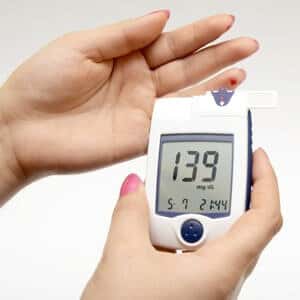
A week ago the FDA put out a report that “suggested significant or near-significant increases in all-cause mortality” associated with the diabetes drug Onglyza (saxagliptin). In other words, more patients died while taking Onglyza than taking placebo. In addition, the FDA noted that there was an increased likelihood of hospitalization because of heart failure in those people taking Onglyza.
SAVOR Study
This information was part of an intensive analysis of a huge study called SAVOR (Saxagliptin Assessment of Vascular Outcomes Recorded). This post-marketing Phase 4 trial involved 16,492 high-risk patients with type 2 diabetes. They were randomized to receive either Onglyza or placebo. The FDA wanted to determine whether there might be adverse cardiovascular outcomes such as heart attacks, strokes or deaths linked to long-term exposure to Onglyza. They were also hoping to discover whether this relatively new diabetes drug might actually prevent such problems.
The Envelope Please!
After roughly two years the verdict is in, and it’s not very impressive. First, treatment with Onglyza did NOT prevent serious heart events or strokes. Presumably that is one of the key reasons for taking a diabetes drug, ie, preventing the worst complications of the disease. The FDA seemed thrilled that the drug did not appear to cause heart attacks and strokes, but we find that a pyrrhic victory in light of the fact that it was associated with an increased risk for heart failure and death.
One might think that such complications would be extremely worrisome. In decades past when a diabetes drug was found to increase mortality it immediately became controversial and lost favor with physicians and the FDA.
The first randomized controlled trial of the diabetes medicine tolbutamide (Orinase) was called the University Group Diabetes Program (UDGP). It was stopped prematurely in 1969 because of an increased death rate in the drug takers compared to those on placebo.
Not surprisingly, the manufacturer of Orinase complained bitterly about the study results. Nevertheless, the FDA sent out alerts and “Dear Doctor” letters notifying prescribers of the risks.
Fast Forward to 2015 & Onglyza
Things at the FDA are quite different 45 years later. A special advisory committee meeting at the FDA reviewed the data from SAVOR and concluded that the drug should not be withdrawn from the market and did not need restrictive labeling. The FDA committee determined that the drug did not pose an unacceptable risk, even with the problems described above.
A similar drug, Nesina (alogliptin) also got a green light despite a signal that it too could increase the risk for heart failure. The panel did recommend that both drugs carry warnings about heart failure, though how much attention is paid to such labeling changes remains questionable.
There’s big money at stake. Last year Onglyza had sales of $820 million and Nessina topped $400 million. Another drug in the class, Januvia (sitagliptin), has had sales over $4 billion annually.
Dr. Sidney Wolfe of Public Citizen, a consumer advocacy organization, commented at the hearings that Onglyza has no unique benefits but some unique risks. He recommended that the drug be recalled.
Heart Failure
Heart failure may sound somewhat innocuous, but in fact it is a very serious complication. Not only can heart failure be lethal, but in people who don’t die of it right away, heart failure can seriously impair quality of life. The shortness of breath, difficulty exercising, lack of energy and swollen legs and feet can be extremely uncomfortable as well as disconcerting.
Heart failure is also hard to treat. Although physicians may prescribe a range of medications, often several drugs are needed to counteract the problems heart failure causes. In some severe cases, the person may need to have a device implanted to help the heart mechanically. Occasionally, heart failure must be treated with a heart transplant.
The point here is that it is a serious condition that must not be brushed aside. Unfortunately, Onglyza is not the only diabetes drug that can increase the risk of heart failure. Older medications such as rosiglitazone (Avandia) and pioglitazone (Actos) also increase a patient’s risk of developing heart failure. This complication contributes significantly to the cost of caring for people with type 2 diabetes in the US.
Pancreatic Cancer?
There have been indications for several years that one drug in this category, Januvia, increases the risk for a rare but extremely dangerous side effect, cancer of the pancreas. Although the FDA apparently has decided that this is not a significant side effect of Januvia, that may not be the message from the adverse events that get reported to the agency.
If FDA fails to be concerned about the potentially deadly side effects of drugs to control blood sugar, patients will need to watch out for themselves. To the extent possible, controlling blood sugar with exercise, diet and the least dangerous drugs at the lowest dose that works may turn out to be the best strategy for many individuals.

